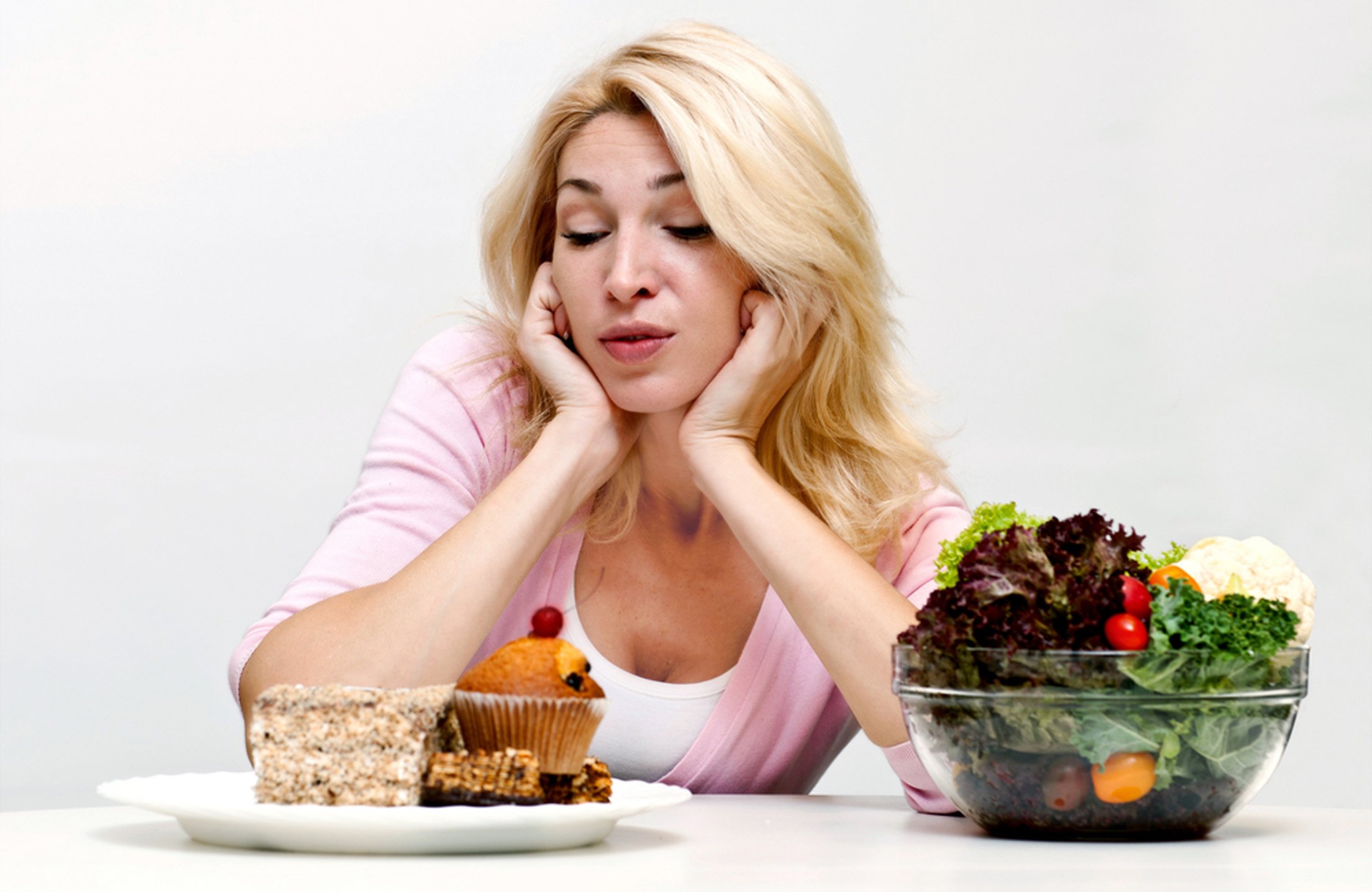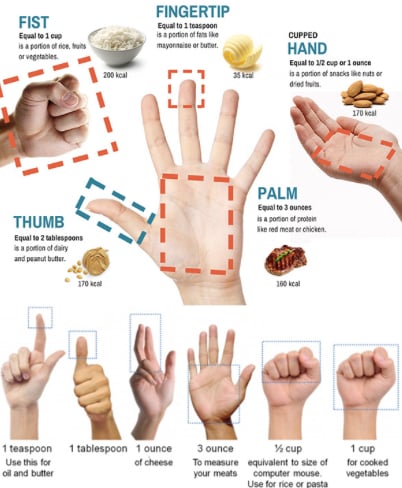The Summer is back, and your social feed is full of reminders of why you need to get back in shape, and fast. This time will be different. This time you’re fully committed to eating clean, working hard, and staying consistent, right?
You’ve stuck to your new diet for 6 whole days now, fighting cravings like bad guys in a superhero movie, and you deserve a pat on the back, and, ummmm-a-donut? 💁🏽🍩
You know one of those decadent artisan donuts, with bacon, or fruit loops on top, from one of those trendy donut shops that close as soon as they sell out. Maybe you even think you deserve a whole day off—a designated cheat day if you will.
But are cheat days a good idea? Does one day of unmitigated indulgence really help you reach your health and fitness goals? Or do cheat days start you on a rollercoaster of counter-productivity? We talked to [1] Tara Coleman, Clinical Nutritionist, about the pros and cons of having a cheat day, the physical and mental effects that come along with them, and why cheat days aren’t such a bad idea (in theory). Here’s what she has to say about a diet cheat day…

1. It’s Not Your Cheat Day, It’s Your Diet
If you leave it up to most of us, a cheat day may look something like this:
- Breakfast – A tasty asiago bagel with cream cheese, smoked salmon and capers, and a double vanilla latte.
- Lunch – A scrumptious, wet carne asada burrito, topped with enchilada sauce, sour cream, and cheese, with tortilla chips, and an ice cold drink.
- Snack – A couple of scoops of handmade ice cream (sprinkles included!)
- Dinner – A couple slices of sinfully-delicious Chicago-style deep dish pizza, a caesar salad, and a couple of cocktails.
The example above is less like a cheat day, and more like a cheat Armageddon. When asked if having a cheat day is bad for a person on a strict diet, Tara Coleman says, “I would say that it is not necessarily the cheat day, but the strict diet that could be potentially bad for a person. It’s important to remember that weight and poor health are symptoms of behavior, so the purpose of a diet is to change your behaviors, or else it won’t have sustainable results.”
Put simply, moderation is the key to any healthy diet, yeah—sounds easy. Sure, dangling the proverbial carrot (cake) in front your face all week could be a great motivator, but if you culminate your week of eating clean and green with an onslaught of junk food and empty calories, it could end up having the opposite effect.
“The potential benefit of having a cheat day is that it can teach you that deviation from a meal plan or way of eating is not the end of the world. Again, in theory you can learn that nutrition isn’t a destination, but rather a management issue, so learning flexibility is key. The risk is that rather than teaching flexibility, it usually teaches a black or white mentality, i.e. when I’m “on” or “good” I eat this way, and when I’m “off” or “bad” I eat that way. This (mentality) keeps people stuck in weight cycling,” says Tara.

2. Your Non-Cheat Days Are More Important
Like I talked about at the top, you are absolutely slaying this diet thing, and the soreness from your first week back at the gym is just starting to subside (after 4 Aleve/day). Your meal prep was nothing short of culinary magic—even gave up your evening glass of wine ALL week. 🏆
So what’s the big deal with having a “Diet Cheat Day”?
Well it starts with the term “Cheat Day”. Do you really have to dedicate a whole day to cramming carbs and sugars down your throat before the clock strikes twelve? I mean, are there such a thing as healthy cheat meals? Would reducing cheat day to a cheat meal work out better?
When we asked if scaling back, and having a ‘cheat meal’ would be better, Tara says, “Of course, having a meal that is different than what you normally eat during the week can potentially give you pleasure, and teach flexibility. Whereas having a whole day can lead to the idea that you have to fit as much food as possible into an arbitrary 24 hour period.”
She goes on to say, “Our bodies can handle indulgence from time to time as long as it’s not coming from a very restrictive place. So if you are eating moderately for the 6 days prior, a higher calorie/carb/sugar day shouldn’t have as much impact. In turn, if you are really cutting carbs and calories, your body is more likely to hold onto that excess.”
3. Working Out Harder Won’t Save You
If you’re anything like me, you’ll try to outsmart your metabolism. You’ll wake up Saturday morning (cheat day), hit the gym, and try to burn 3000 calories before you leave, to offset the 24 hour binge that is about to take place. 🏃🏽🏋🏽🚴🏽
But is working out extra hard on cheat day really an effective way to reduce the damage those extra calories do to your diet? Should you avoid combining cheat day with your rest day?
When asked about this theory, Tara Coleman told us, “The calories that you burn through exercise are really a drop in the bucket when it comes to your metabolic rate. If anything, this might make you feel entitled to eat more or give you the mentality that you have to earn your food.”
Ugh! So you mean to tell me that my extra sets of Bulgarian split squats won’t cancel out the praline cheesecake I’m planning on annihilating while I binge watch season 2 of The Handmaid’s Tale? Great… 😤
It’s widely believed that eating foods that are different than what you normally eat can actually kick start your metabolism? But this is something that is more true in theory than in practice?
“When you cut calories or food groups, your body adapts because it doesn’t like to lose weight quickly. This causes your metabolism to slow and your cravings to increase. The idea is that a blitz of calories will keep this from happening. Although this can be effective for some people, the vast majority of us don’t see positive results. Again, we tend to focus on the cheat or binge, but it is the other days that have the true impact on your weight and health.” says Tara.
“As a rule of thumb it is better to satisfy your cravings rather than trying to trick your body.” – Tara Coleman
4. Portion Control Is The Key
Portion control is everything. I know what you’re thinking—duh. But really, it’s more important that you know. We’re programmed to eat everything on our plates. I’m old school enough to remember having to be excused from the table by my parents after dinner—I know, sounds ancient. But I can remember my mother telling me, “You’re not getting up til’ every morsel on that plate is gone! Don’t you know there are kids around the world who are starving?”
Thanks a lot mom, now I’m taking down double cheeseburgers with reckless abandon. Okay, so I can’t blame Mom, her heart was in the right place. Besides, Americans just eat more don’t we? 🤔
A review published in 2013 stated that larger plates of food can lead to us eating up to 45% more than what our average intake would be [2].That’s a lot! Most data and studies support the claim that we’ll almost always eat more if we are offered larger portions.
In some cases having big portions may actually be a good thing. Portion control is important with exception to non-starchy vegetables. So go ahead, go big on broccoli and brussels sprouts #TeamNoGuilt
But even when eating the foods you like, just limiting yourself to what you need goes a long way when it comes maintaining a healthy diet. “I wouldn’t consider something a ‘cheat’, as long as my client wasn’t eating to the point that they are using food to hurt themselves”, says Tara Coleman.

Portion control allows you to keep a close eye on how many calories you’re taking in. It’s more effective than denying yourself the food you love most (That’s just boring). It just means eating only what your body needs, instead of mindlessly overindulging. SkinnyFit Detox is a great ally to have when it comes to outsmarting your cravings and supercharging your weight loss. It’s 13 superfood ingredients help you shed water weight, fight bloating and clear the toxins out of your body.
The Bottom Line On Diet Cheat Days
Cheat days are soooo overrated, and somewhat ineffective. Do away with a designated cheat day to reward yourself for staying dedicated to a boring, tasteless (but healthy) diet. Because denying yourself all week, only to swan dive into a pool of overindulgence just promotes guilt, and anxiety around eating—in turn you probably won’t get the results you’re looking for.
Instead, make every day awesome by working with your appetite, mixing in some of your favorite foods here and there in sensible portions, and savoring every bite of everything you eat. This way it becomes less a diet, and more of a lifestyle change you can sustain, then there will be no use for a cheat day—or the guilt that comes with it. SkinnyFit Detox is the perfect addition to helping you stay focused during your diet cheat day. Fight bloating, boost metabolism, and shed excess water weight!
References
[1] https://www.ncbi.nlm.nih.gov/pubmed/24341317
[2] Tara Coleman https://taracoleman.com/media/